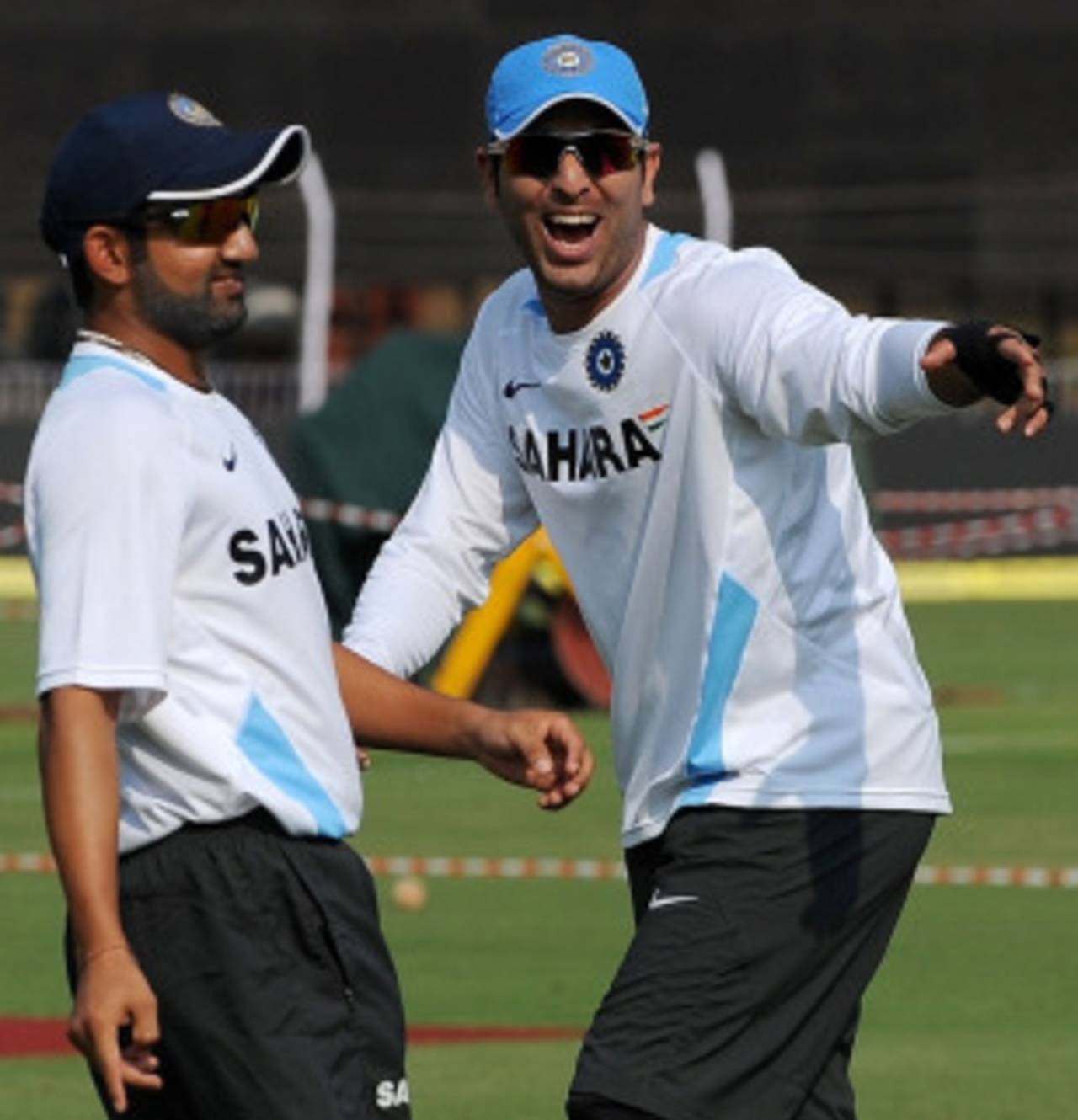Nothing warms the heart like watching, from a distance, young children involved in sports and games. I particularly become all soft and marshmallow-like inside when I ask a small child, less than five years old, what they want to become when they grow up; and they reply with high-pitched gleeful shouts of "Sachin!" or "Ponting up till five years ago!" or even "Aggressive fast bowler, preferably from Kerala!"
(Any older than five, and they get all technical and fuzzy: "I want to be a thrilling opening batsman with a stunning array of leg-side shots. Or a vampire.")
But recently I overheard a little boy say that he wanted to grow up and become "the captain of the Indian cricket team".
Frankly, I was quite taken aback by this. Why would you have such a peculiar ambition? Did this boy have an abnormal propensity to toss coins or convene press conferences? Is he looking for something to blame his waning form on? Does this mean he can't field for nuts?
Or perhaps this was an ambition his parents had ingrained in him. What with the competition to get into good schools and colleges these days. The latest sports quota criteria to get into St Stephen's in Delhi this year are: participation in Asiad and upwards OR Gold medal at Commonwealth Games OR aggressive fast bowler from Kerala.
Whatever be his motivations, I wished him well and then forgot all about it.
But Gautam Gambhir's recent performances brought the memory rushing back to me like a Neo Sports ad break. And I began to wonder, is captaincy really everything it is made out to be?
Gambhir, if you do not know already, is the most successful captain in the history of cricket. Or even the known universe. He has never lost a single match while leading the team.
Now I can already see some of you rising up in protest at my inadequate statistics. He has only captained in four matches you say. How is that sufficient to draw a trend? What nonsense is this?
You have fallen into my well-laid trap. [Laughs in evil fashion]
Let us peruse the statistics for one moment.
If you look at the list of captains India have ever had in its ODI history, from Wadekar to Gambhir, and then put them in a table based on win percentages, the top four are as follows:
Gautam Gambhir: 4 matches, 4 wins, 100%
Anil Kumble: 1 match, 1 win, 100%
Ajay Jadeja: 13 matches, 8 wins, 62%
Virender Sehwag: 5 matches, 3 wins, 60%
Below them you have other less successful captains such as Ganguly, Dhoni and so on.
If you are a true cricket fan, this is mind-blowing information. This means that everything we've been told about the captain being crucial to the success of a cricket team is complete and utter bollocks.
What teams urgently need to do is to abandon the current policy of having one player captain the side for hundreds of matches. Till he finally retires, or is dragged away from the dressing room kicking and screaming in Bengali.
Our data and cutting-edge analysis shows that it is short spurts of captaincy rather than long stints that are most successful.
I propose a new system in which captaincy is allocated to players in a completely random fashion. Just 15 minutes before the captains go out for the toss, the coach walks in and points at any one of the playing 11. Instantly they become the captain till further notice.
This arrangement is allowed to continue for 5 to 10 ODI matches before the random allocation happens again. More than 10 will lead to complacency. If my analysis is correct India, at least, should be able to up its ODI win rate from a little below 50% to over 60%.
If all teams do this then ODI winning rates in cricket overall will go up substantially. This is excellent for the sport.
I firmly believe that my idea will have as much of a lasting impact on cricket as, perhaps, sightscreens.
Now the only question is whether makeshift captains will be able to do things like toss coins or make post-match speeches.
The first is merely a question of practice.
The second is trickier. But there is a way. For post-match speeches players can be provided with templates.
Choose any one from each set for your speech:
1. Hello / Hi / Wassup daddy-o!
2. Yes we played well / They played well / It was a great game of cricket.
3. The ball came on to the bat nicely / It was a hard pitch to bat on / Things changed later in the day when the dew came down under the lights and started reverse-swinging our balls.
4. I am happy we won / But they were just better on the day / We need to go back to the drawing board
5. We now have some momentum / We need to stay focused and positive
6. I am happy we are the winners / I am happy cricket is the real winner
7. Thank you for the cheque / Thank you for this small crystal trophy-like thing / Praise be to god
I am hoping that all cricket administrators everywhere will take these suggestions seriously.
Note: There are some cases of captains with short stints having lost all their matches as well. Also the Kolkata Knight Riders tried rotating captains with poor results. Both those facts have been ignored for the purpose of this column.
Sidin Vadukut is the managing editor of Livemint.com. He blogs at Domain Maximus. His first novel, Dork: The Incredible Adventures of Robin 'Einstein' Varghese, is out now
